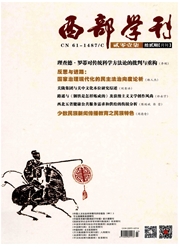

 中文摘要:
中文摘要:
空间是城市社会重要的生产要素,空间重构是转型期城市地理学研究的基本内容。转型期西安城市空间重构出现了郊区化、垂直化、景观化和贫困化四个明显的趋势,历史传统与旧工业布局、土地与户籍制度变革、经济增长模式、结构变动、城市规划与城市自组织构成了转型期西安城市空间重构的驱动机制。对于转型期西安城市空间重构的研究可以为西安建设可持续城市提供有益的参考。
 英文摘要:
英文摘要:
Space is an important productive factor in urban society, and spatial restructuring in transitional period is a significant subject of urban geography research. In a transitional Xi'an, there have been four tendencies in the reconstructing of urban space: suburbanization, perpendicularity, landscaping and poverty. The driving factors of space reconstruction of Xi'an include many types: historical gene, institutional reform on the land and household registration, economic development pattern, structural adjustment, urban planning and self-organizing. A review of the transformation of Xi'an's urban space could provide a beneficial reference for its sustainable construction.
 同期刊论文项目
同期刊论文项目
 同项目期刊论文
同项目期刊论文
 期刊信息
期刊信息
